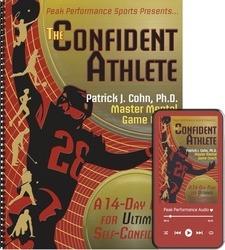How Do Your Respond To Losing During A Game?
Have you ever played a game or competition where you found yourself or your team losing by a significant margin? Time may have seemed to be running out for a comeback as the deficit may have appeared insurmountable. How did you respond mentally? Did your team panic? Or did your team let down and give up? Many athletes and teams will simply go through the motions to merely finish the game. In essence, those athletes gave up on themselves. Championship teams refuse to quit until the final whistle. Championship teams exhibit resiliency and resourcefulness and search for a way to achieve success. They do not panic when losing. They may not always win the game but fight to the finish.
The Indianapolis Colts bounced back from a 28-point deficit in the 2014 AFC wild card game against the Kansas City Chiefs in one of the most epic comebacks in NFL playoff history. In the beginning of the third quarter, the Chiefs scored a touchdown to take a 38-10 lead. Despite the odds, the Colts remained focused and overcame the deficit to earn a 45-44 victory. It is only the second time in NFL playoff history a team rallied from a deficit of 28 or more points to win.
The Mindset You Need to Make a Comeback
What reason did the Colts attribute for their successful comeback? Like all successful athletes and teams, it lies within their mindset which includes; staying calm under pressure, playing one play at a time, competing from your strengths, focusing on what you can control and never quitting despite the odds.
Coby Fleener, Colts tight end, described quarterback Andrew Luck’s ability to remain calm under pressure despite the emotion of critical moments during games, “He does get angry with himself but at no point is he throwing in the towel. He handles (these situations) the same way. It’s the realization there is no one play that is going to get you back in the game. It is a series of positive plays to mount a comeback.”
Andrew Luck credits his team’s never-say-die attitude, “I’ll say one thing, this team has never panicked since I’ve been a part of this club. They’ve never panicked in any game we’ve been a part of – up big, down big, close game, first quarter, fourth quarter.” Luck went on to say that his team immerses their selves in the game and stay focused on what they can control, “These guys just play football.” Finally, Luck described the key to coming back is playing one play at a time, “We were sort of reaffirming that on the sidelines we don’t need anything special… there is no 28 point score.”
Keys to a Comeback:
- You must believe in your abilities and play to your strengths.
- You need to concentrate on one play at a time.
- You must be able to manage your emotions and focus on what you need to do.
- You must commit to fight every second of every game.
If you dedicate yourself to adopting these characteristics, you will risk more to change the outcomes of games.
Sign Up For a Free Mental Toughness Report!
Related Sports Psychology Articles
- What is Your Self-Doubt Comeback Statement?
- On Comebacks, Meltdowns, and The Mental Game
- Using Your Mind to Mount a Comeback
*Subscribe to The Sports Psychology Podcast on iTunes
*Subscribe to The Sports Psychology Podcast on Spotify
Download a free sports psychology report to improve your mental game!
Learn more about our one-on-one mental game coaching.
The Confident Athlete

“The Confident Athlete” consists of 2 audio programs that include 14 days of confidence fueling exercises and a simple to follow workbook that guides you through the 14 days, helps you apply the strategies, and customizes the exercises to your personal needs.
Let me help you put a stop to the confidence leak. You can learn to have greater levels of confidence in competition than you do in practice by identifying the specific ways you undermine your own confidence and how to convert your practice confidence into COMPETITIVE CONFIDENCE.
“The Confident Athlete” is a ground-breaking system to teach you how to think like a champion and have ultimate self-confidence every time you step on the playing field, court, track, or course. The confident athletes was developed for any athlete – junior to professional –that wants to gain confidence. However, coaches and sports parents can learn how to teach others to perform with ultimate confidence. Use my program if you want to bust a slump or just wanting higher or more consistent levels of self-confidence.

